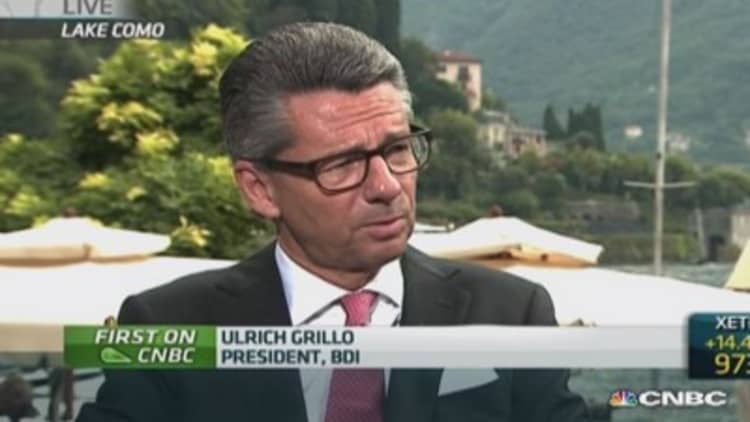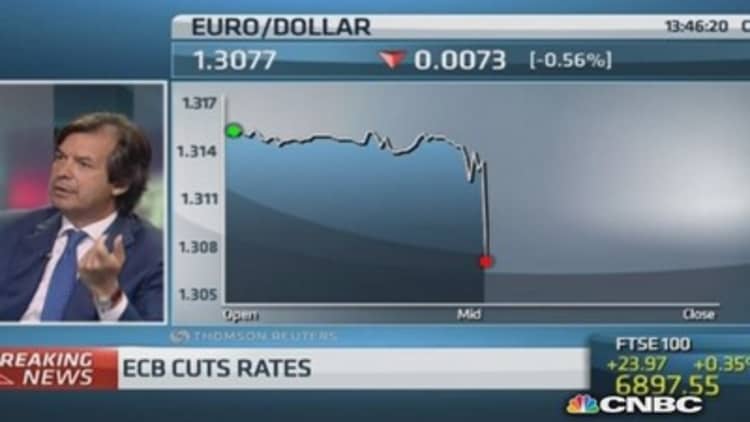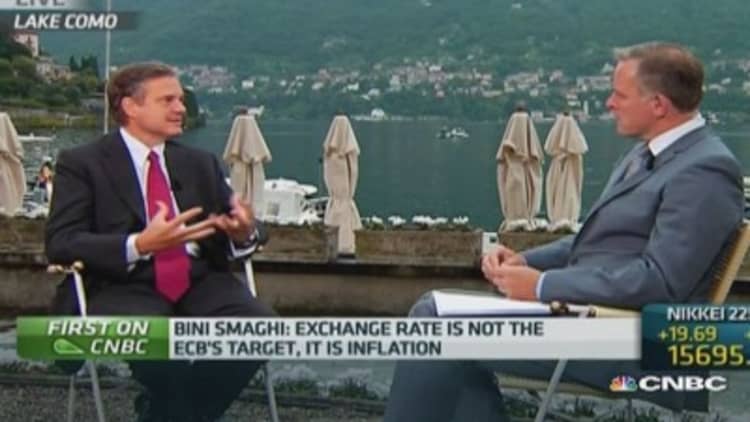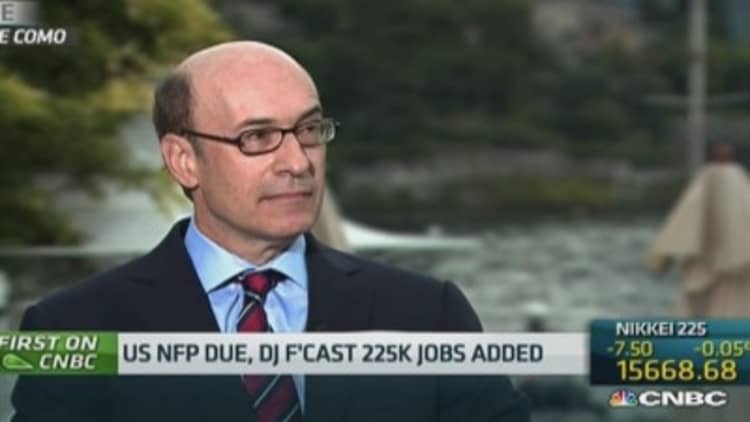The ECB's triple-interest rate cut and bond-buying announcement surprised investors on Thursday—and were still sparking debate a day later.
ECB President Mario Draghi said the council, which includes the central bank chiefs of each euro zone country, was "un-unanimous" in its decision to cut key rates to record lows and purchase covered bonds and asset-backed securities—a private-sector version of the quantitative easing practiced by the U.S. Federal Reserve.
He told journalists at his regular press conference on Thursday that a "comfortable majority" of members were in agreement, but that some felt the moves were unnecessary or inappropriate, while others had pushed for still more "unconventional" stimulus measures.
ECB-watchers were left in the dark as to which members voted against the measures. However, speculation was rife, as some countries' central bankers have previously come out as for or against further easing measures. One vocal critic is German Bundesbank President Jens Weidmann.
With that in mind, CNBC takes a look at reactions from around Europe—and further afield.
Germany
German economists, politicians and bankers have previously expressed skepticism about asset-buying by the ECB, mainly because they see it as a means of bolstering profligate southern European economies at the cost of frugal Germany.
Unsurprisingly therefore, Thursday's announcement was met with concern.
German business daily Handelsblatt headlined on Friday with "Draghi out of control", while DW ran an opinion piece on its website entitled "Draghi plays risky game".

Economist Hans-Werner Sinn, who heads Munich's Ifo institute, said in a statement Thursday that the new bond-buying program was outside the central bank's remit and taken at the expense of European citizens, who would bear the risk.
He added that the surprise interest-rate cuts would have no impact on the regional economy. "The ECB used up its ammunition much too early and cut interest rates by too much. Now it is in a liquidity trap."
Liane Buchholz, managing director of the Association of German Public Banks, said that instead of relying on ECB measures, countries should follow Germany's example and establish "development" banks that are exempt from corporate taxes and provides low-cost loans to the private sector.
"Instead of continuing uncontrolled pumping liquidity into the banking system, unsettling depositors, other measures targeting the improvement of financial conditions and investment promotion should be taken," Buchholz said in a statement Thursday.
Italy
Struggling "peripheral" euro zone countries have typically been more in favor of ECB stimulus measures—particularly those like Italy, whose economy is forecast to shrink again this year.
Italian daily newspaper La Stampa headlined on Friday with "Mini-euro and a lot of cash to jump-start Europe" and "The banker weaves fabric against the ideologues of rigor".
Read More'Bold action' needed on Europe unemployment: Report
Following the rates announcement, the head of one of Italy's largest banks told CNBC that the move could provide a sentiment boost that would be advantageous for the Italian financial sector.
"This can increase real economy demand for credit, because this is another lever to increase the demand for products, and so, GDP," Carlo Messina, CEO of Intesa Sanpaolo, told CNBC.

Fellow Italian and former ECB Executive Board member, Lorenzo Bini Smaghi, professed himself broadly in favor of the central bank's assets-buying program.
"How do you create liquidity? You buy assets and you inject liquidity into the system," he said to CNBC at the annual get-together of world leaders at the Ambrosetti Forum in Italy on Friday.
"We will see—the U.S., Japan, all the other countries have gone down this avenue. The ECB has been the only one not to, for good reasons in the past. Now that inflation is close to zero percent, why are we waiting?"

Outside Europe
Renowned Harvard University economist, Kenneth Rogoff, said Draghi had gone "as far as he could". "It's not just what he's doing now, but the signal he is sending about what is to come," he told CNBC on Friday from the Ambrosetti Forum.
Rogoff added that the ECB's biggest battle was now helping stabilize the euro zone's banking sector. The central bank has spent months reviewing around 130 "systemically important" financial institutions, and stress tests are underway to gauge whether banks are strong enough to withstand future economic crises.

The ECB will publish its verdict next month, along with updated capital-raising requirements for individual banks.
"That's the big thing going on," said Rogoff. "That's going to be very painful politically for the ECB. They're going to have to… say: 'You've got to get more equities into your banks.'"
—By CNBC's Katy Barnato

